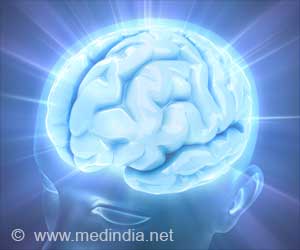Organ donation NGO MOHAN Foundation, signed a landmark MoU with NHS Blood and Transplant, UK in Chennai to improve organ donation rate both in India and the UK.

The signatories of the MoU were Prof. James Neuberger Associate Medical Director for Organ Donation and Transplantation, NHSBT and Dr. Sunil Shroff, Managing Trustee, MOHAN Foundation.
The MoU was signed in the presence of Dr. J. Radhakrishnan, IAS, Principal Secretary, Health and Family Welfare, Government of Tamil Nadu and Dr.Satya Vrat Sharma at the culmination of a consultative meeting for senior Transplant Coordinators from across the country organized by MOHAN Foundation.
Prof. Neuberger expressed optimism that sharing knowledge and experience on the different aspects of organ donation and transplantation would have a positive impact, especially on minority and hard-to-reach groups.
Dr. Sunil Shroff said that this collaboration had come about because of the unflagging enthusiasm and great initiative shown by Dr. N. Sridhar, Former NHSBT Regional Lead for Organ Donation, Midlands, UK and presently Senior ICU consultant, Intensive Care Unit, Kauvery Hospital, Chennai.
Elaborating on the activities of MOHAN Foundation, Dr. Shroff also said that transplant coordinators had a key role to play in the organ donation pathway and do the most difficult task of supporting and obtaining consent for donation from a grieving family.
Dr. Shroff noted that there is huge imbalance between the demand and supply of organs in India and to curb this deficit, organ retrieval from brain dead patients should get more attention. There are over 210,000 kidney and 100,000 liver transplants needed to take care of demand for organs.
MOHAN a not for profit non-government organisation has become the largest pan India organisation that has played a significant role in providing momentum to the deceased donation and transplantation programme.
In 2013 India did 330 deceased donors in our country. 2014 saw a 25% increase in the numbers and 411 deceased donors with Tamil Nadu doing 136 of these donations, followed by Kerala. Dr.Shroff concluded by saying that “What is required to push these number further is to educate not only the public but also more importantly the doctors about this programme.”
Dr. J. Radhakrishnan, IAS, Principal Secretary, Health and Family Welfare, Government of Tamil Nadu, hailed the effort being made by MOHAN Foundation to increase the organ donation rate in India. He also said that much more effort, dedication and coordinated efforts from NGOs are required to have success in this field.
“Despite tremendous advances in the field of organ transplantation that have occurred in India and around the world during the last two decades, we are still not able to procure enough organs for those awaiting transplants. The association between India and the UK will definitely help in increasing the organ donation rate in both the countries,” Dr. J. Radhakrishnan said.
Speaking about several myths surrounding organ donation, Dr. Satya Vrat Sharma MBE, the special Invitee, said that we should set up an organ donation awareness programme starting at the school level.
“In most homes, any discussion related to death is taboo. Also, a major section in the society is still reluctant to even talk about organ donation. Hence school level awareness campaigns can make a huge difference,” Dr Satya Vrat said.
He also said, “Some people believe, if they agree to donate organs, they will not get proper treatment for their health condition. But the fact is that when you go to the hospital, doctors focus on saving your life – not somebody else's. Moreover, every hospital has a standardized set of criteria that it uses for the determination of brain death and brain death committees that are responsible to keep up to date on the latest medical information about brain death,” Dr Satya Vrat explained.
He mentioned that the National Transplant Organization of Spain is one of the most successful in the field of organ donation in the world.
Not only does Spain have the highest donation rate in Europe, with 34 donors per million people, but it is has almost 3 times the UK rate of 13 per million.
The MoU will be reaffirmed in UK on the 26th of February 2015 in London at the House of Lords and its launch will be led by President of the British Medical Association Baroness Ilora Finlay.
Source-Medindia











